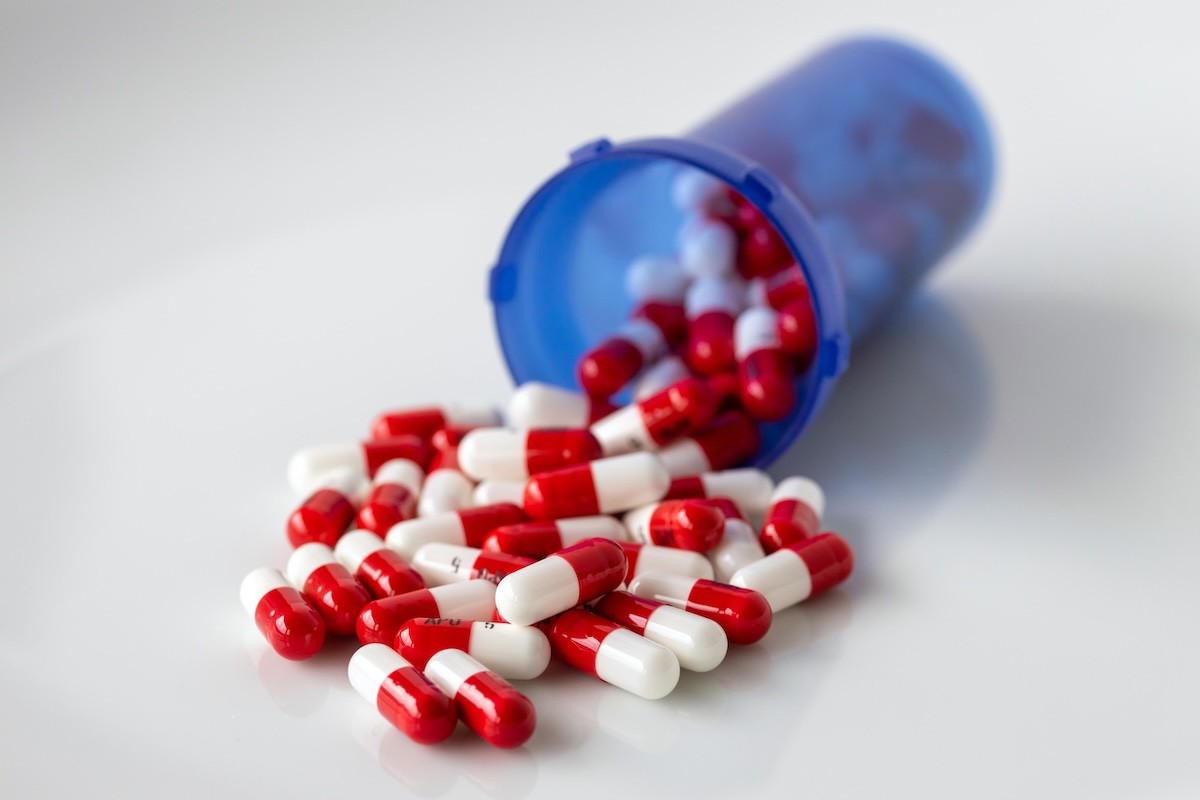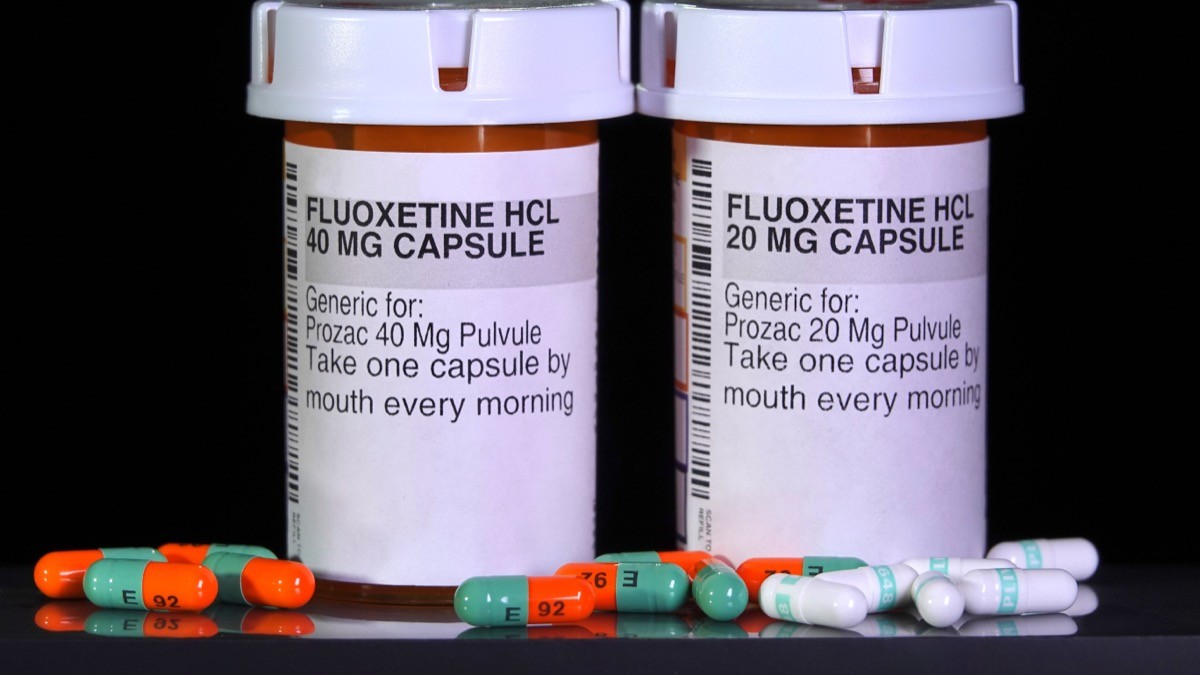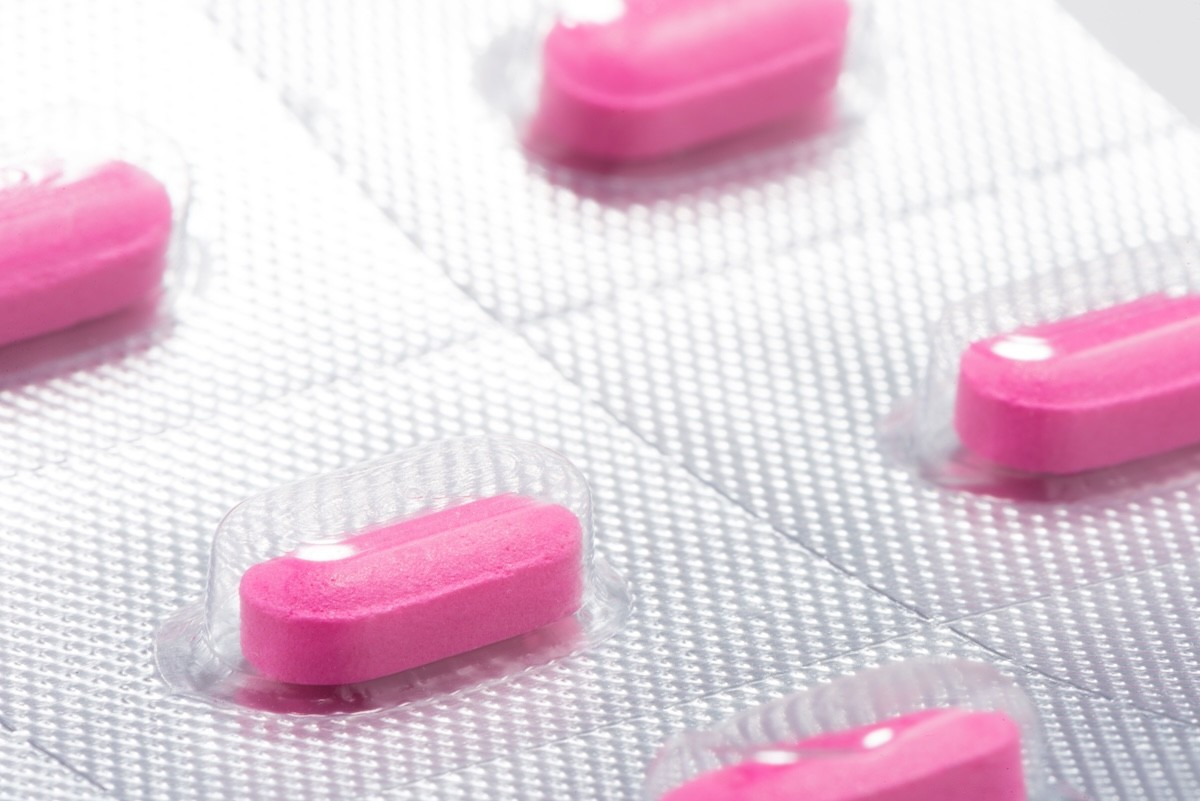Doctors Warn These 3 Medications Can Cause Complications During a Heat Wave

We’re only four days into summer, and it’s already a scorcher. The National Weather Service issued a warning that “extreme heat” will last through most of this week, stretching “from the Lower Mississippi Valley and Midwest to the East Coast, affecting nearly 160 million people.” And it’s unlikely this will be the last heat wave of the season.
You’re probably well aware that you should drink plenty of water and avoid outdoor exercise when the temperature climbs into the 90s and even 100s—but did you know that you may need to take extra precautions if you use certain medications? According to doctors, these are the three over-the-counter and prescription meds that could be most dangerous during a heat wave.
RELATED: 10 Items You Shouldn’t Wear on Hot Days If You’re Over 65.
Heat-related illnesses are increasing.

More than a thousand people die in the U.S. each year due to extreme heat, according to the Centers for Disease Control and Prevention (CDC). In a 2024 report, the agency warned that heat-related illnesses have been increasing over the last few years “as climate change results in longer, hotter, and more frequent episodes of extreme heat.”
“Heat-related illnesses, like heat exhaustion or heat stroke, happen when the body is not able to properly cool itself,” the CDC explains. “While the body normally cools itself by sweating, during extreme heat, this might not be enough. In these cases, a person’s body temperature rises faster than it can cool itself down. This can cause damage to the brain and other vital organs.”
According to the agency, there are many factors that may increase your risk of developing a heat-related illness—including the use of certain medications.
But exactly which medications should you be concerned about? In an interview with The New York Times, Michael Redlener, MD, medical director of the emergency department at Mount Sinai West, opened up about some of the medicines that may raise your risk.
2
Blood pressure medications

According to Redlener, medications prescribed to treat high blood pressure—including angiotensin-converting enzyme (ACE) inhibitors, beta-blockers, and calcium channel blockers—are among the most important groups to watch out for.
As he explains, ACE inhibitors can increase the risk of fainting and falling, especially in extreme heat, and suppress the feeling of thirst, which may make it harder to tell when you need to drink more water.
“Drinking enough fluids is one of the most important things you can do to prevent heat illness,” the CDC advises.
Beta-blockers can increase your risk of fainting and falling, too. They can also make it difficult for you to sweat, which makes it harder for your body to stay cool.
Meanwhile, calcium channel blockers can make body temperature regulation difficult by causing electrolyte imbalances, Redlener adds.
“Some medications interfere with thermoregulation and/or fluid balance, amplifying the risk of harm from hot weather,” the CDC confirms.
RELATED: 4 Drinks to Avoid During a Heat Wave, Experts Warn.
3
Antidepressants and antipsychotic medications

The New York Times explains that certain antidepressants can repress thirst, possibly leading to dehydration during extreme heat.
According to a paper published in the Annals of Pharmacotherapy, “Excessive sweating has been associated with antidepressants including tricyclic antidepressants, selective serotonin-reuptake inhibitors [SSRIs], and venlafaxine.”
Tricyclic antidepressants include Elavil, Vanatrip, Sinequan, and Tofranil. SSRIs, which are more often prescribed, include Zoloft, Lexapro, Prozac, Celexa, and Paxil. The most common brand of venlafaxine is Effexor.
Mahesh Polavarapu, MD, the medical director of emergency medicine at NewYork-Presbyterian Westchester, says that stimulants, such as those used to treat attention deficit hyperactivity disorder, are another group of medications that can increase body temperature.
Specific antipsychotic medications like haloperidol, olanzapine, and risperidone also impact your ability to sweat, according to Redlener. “Your body temperature has a higher likelihood of getting hotter when you’re on those medications,” he explains.
4
Antihistamines and sleep aids

Plenty of people across the country are still suffering from seasonal allergies, but when the temperature creeps up, you may want to avoid certain allergy meds.
Polavarapu told the Times that over-the-counter antihistamines such as diphenhydramine (Benadryl) should be used with caution during a heat wave as they can prevent sweating and affect temperature regulation. The same goes for certain OTC sleep aids like Unisom, as well as prescription allergy/sleep drugs such as promethazine.
All of these medications contain the active ingredient diphenhydramine, which blocks histamine production in your body. However, Cleveland Clinic notes that it can also cause anhidrosis, “a condition in which your sweat glands don’t function as they should to remove heat and cool your body down.”
These are just some of the commonly prescribed medications that can be dangerous during a heat wave. That’s why the CDC advises healthcare providers to work with patients to make a plan in “advance of hot weather to adjust medication regimens as needed on hot days and for when to seek medical care.”
“Many medicines can make you dehydrated or overheated on hot days,” the CDC notes on its website. “Don’t stop or change your medicines until you talk to your doctor.”